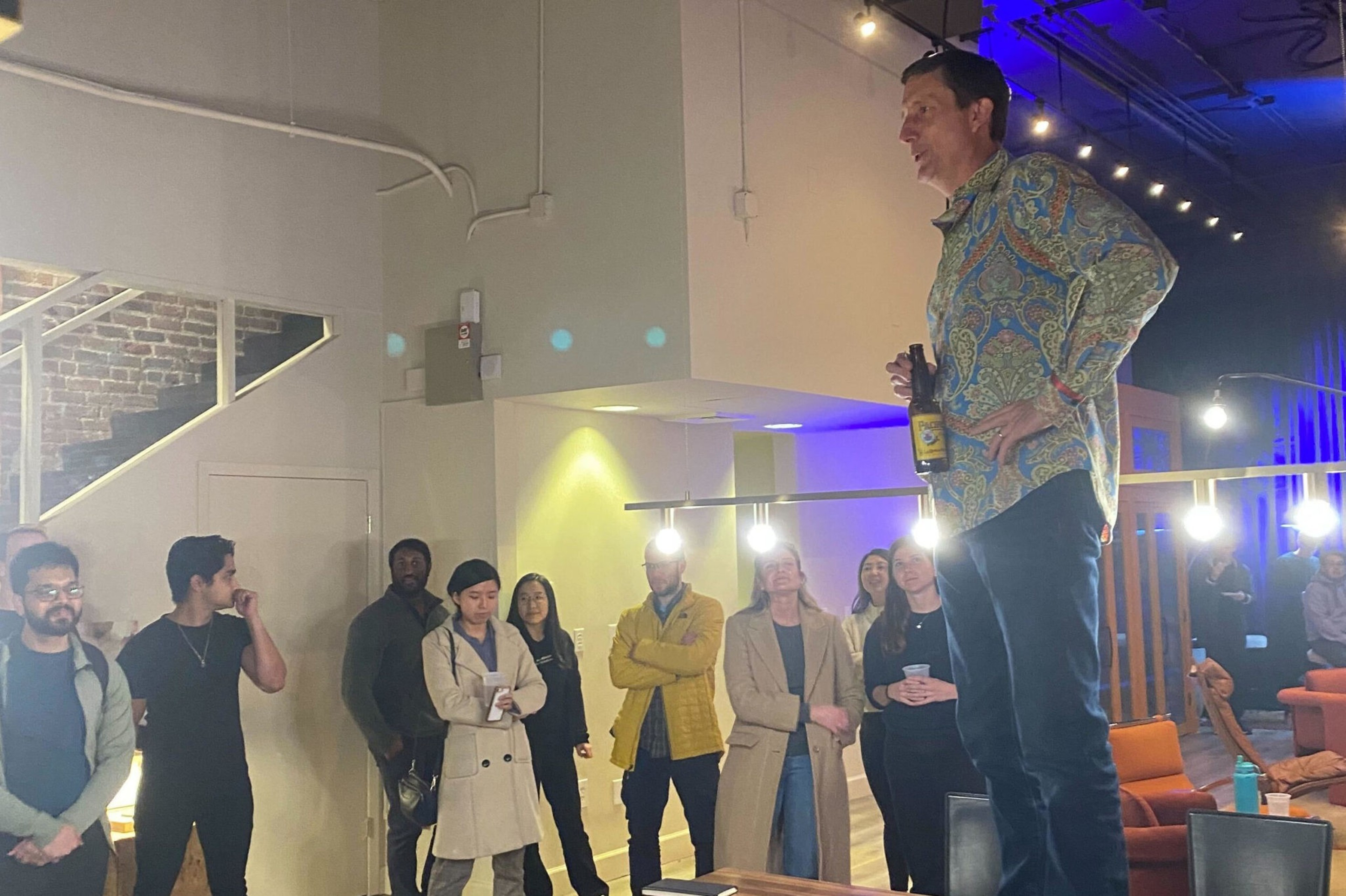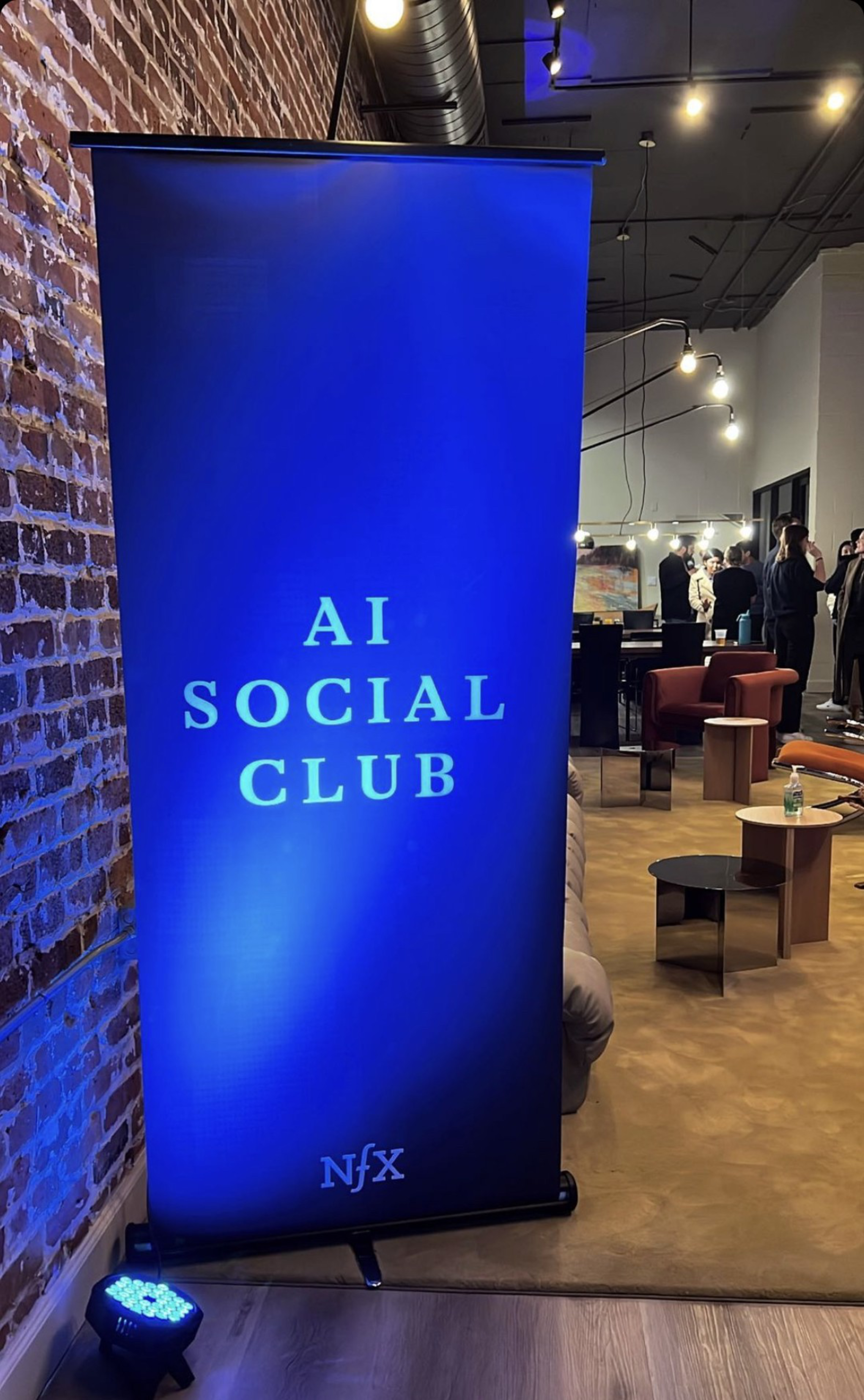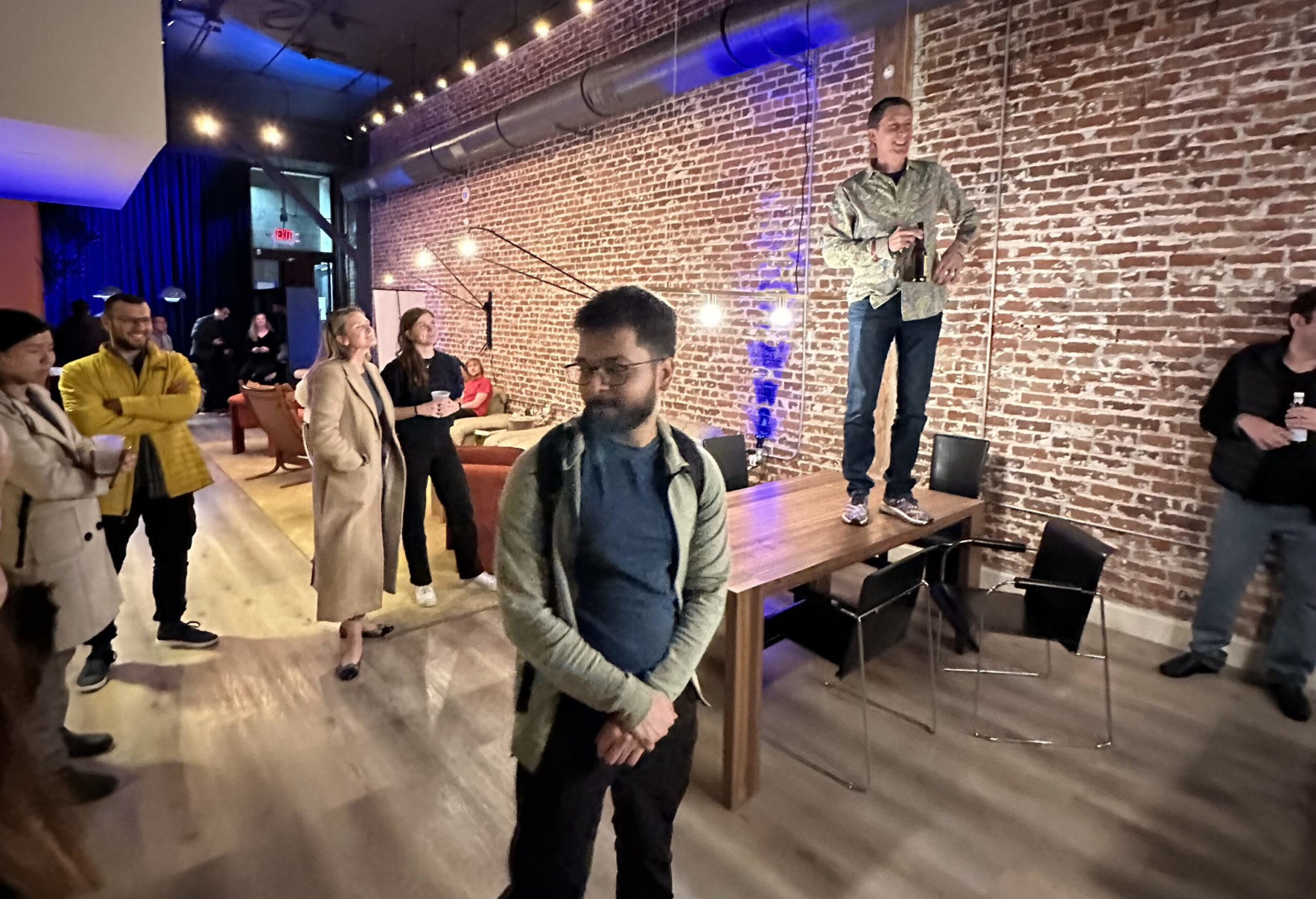Builders and founders from across the nation had gathered in a swanky “Cerebral Valley” office to mingle and enjoy the usual tech industry perks—free booze and canapes. Within minutes, The Standard had already been asked to demo someone’s product, and four others had introduced AI projects ranging from fan fiction to virtual reality.
The slew of parties, industry happy hours and hackathons started to crop up throughout the Bay Area last summer, when AI advancements fired startup culture back into overdrive. Local and international media picked up on the growing excitement, pushing the narrative that San Francisco could be on a slow but steady return (opens in new tab) to its booming tech glory days.
Now, the AI hype bubble feels bigger than ever, and techies are turning their lifestyles into one big networking game. At Tuesday’s AI social party, The Standard found folks who said they’d attended at least a dozen AI parties in the past two weeks. Some spoke up about their fondness of founders from underrepresented backgrounds, while others floated the names of their favorite hacker houses.
‘San Francisco Is Back’
AI Twitter is now buzzing with mixer event listings (opens in new tab) across the Bay Area. Techies say this only really took off over the past few months, following the public release of ChatGPT.
“People joke and meme about how San Francisco is back, but I’ve never seen it more alive, honestly,” said Dennis Xu, co-founder and CEO of AI platform Mem. “It would be a mistake to not, at least in part, attribute it to the rise of the wave of AI.”
The reason behind all the madness? It’s simple: People are interested in building things, and are eager to do so in person, in a community. A slew of SF-based hackathons—often overlapping on the same days—have brought together hundreds of coders to socialize and simply build new products; and live-in incubators have allowed founders to solely focus on their craft, without distractions.
Put simply, the nerds are nerding again. Michelle Fang, self-identified “community girl” of the tech scene (opens in new tab), has been gathering and posting viral tweet threads about community building, social events, hackathons and more.
“San Francisco has always been focused on building and creating cool things and really connecting with people intellectually,” Fang said.
It’s a far cry from 2020 and 2021, when members of the tech community fled en masse from San Francisco and migrated to Miami and New York City, often with baroque twitter threads (opens in new tab) explaining their reasoning. But local founders say that the in-person, social-forward aspect of the AI scene today is vital to its success—and indicative of the old-school, more wholesome “builder culture” that has brought much-needed social cohesion and networking opportunities to the industry.

Sahar Mor, a Stripe product manager who tweets from the handle @theaievangelist (opens in new tab), moved from Berlin to San Francisco around 18 months ago to be closer to the AI action. The Israeli native has spent a decade in AI but was pulled toward the Bay Area by OpenAI’s work.
“It was clear that everything in AI was going to happen here in San Francisco,” Mor said. “Here, people are thinking about this on a daily basis, they’re constantly tinkering. Here. you meet people that are trending on Twitter in real life.”
Mor, like Fang, is a major community builder in the Bay: Mor maintains a frequently updated public Google Doc (opens in new tab) listing AI happy hours, meetups and hackathons, akin to the Twitter threads Fang shares. These community-minded founders are the glue of the industry, and they do it for the love of the game.
Boom and Bust?
It’s hard to observe the generative AI hype wave and not see echoes of the crypto gold rush that crested amid the FTX collapse.
Xu of Mem, one of the first startups to receive funding from the OpenAI Startup Fund (opens in new tab), acknowledged he’s already starting to feel some fatigue from the AI hype, and its relentless pace of events.
“I think I’ve been invited to more events in the last three months than I’ve had in the last four or five years. In my opinion, there’s kind of a little too much happening,” Xu said. Having observed former crypto folks rushing to the AI space, Xu questions whether many entering the scene are there to actually build, or just to socialize.
“There’s a lot that we can learn from crypto and Web3,” Fang said. “There was a huge inflationary period where everyone was excited and eager to work in crypto, but then had a few major scandals and challenges—the industry had a dark period. But I do think the reason why the AI excitement and stock has been so high is because of just the density of the amount of people that are here and building in AI.”

There’s also the open question on how much room there is for startups and small fish in a space where industry giants like Google and Microsoft are duking it out for dominance.
Yitong Zhang, a former Coinbase employee who is building a crypto startup, said he’s always been somewhat skeptical about the overarching narratives around San Francisco’s death and revival.
Many of the events he’s seen are from companies looking to recruit talent, or VCs trying to build up their deal flow. In response, Zhang is attempting to launch his own series of regular happy hour events that aren’t tied to a specific industry or company, but driven by communal passion around technology.
“When the hype dies down on generative AI, the bandwagoners will move on to other things. The ones that remain are the ones that will build lasting companies,” Zhang said. “I think there will always be a bit of a boom and bust in emerging technology and that’s kind of OK.”
